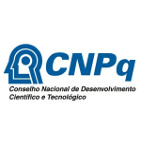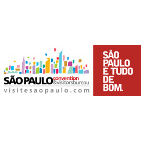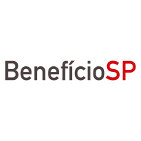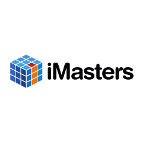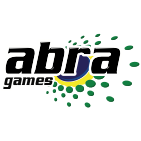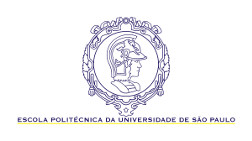The goal of the SBGames 2016 - Computing Track is to advance knowledge related to Computing for Games and Digital Entertainment, by bringing together researchers and fostering discussion about the state of the art in the field.
Best paper - Computing
Player Behavior Modeling for Interactive Storytelling in Games
Edirlei Soares de Lima, Bruno Feijó, Antonio Furtado
Finalist for the selection of best paper - Computing
An evaluation of the human perception of emotions in digital games built across the OCC model
Rainier Augusto, Ferreira Sales, Luiz Chaimowicz
Finalist for the selection of best paper - Computing
Generating Background Population for Games based on Real Video Sequences
Marlon Alcantara, Estevao Testa, Gabriel Lima da Silva, Rodolfo Favaretto, Leandro Dihl, Soraia Musse
Finalist for the selection of best paper - Computing
Design and Evaluation of Serious Games for Cognitive Diagnosis and Stimulation with Older Adults: A Preliminary Study
Helio Silva Neto, Licinio Roque, Joaquim Cerejeira, Joilnen Leite, Durval Neto
Approved papers
- Player Behavior Modeling for Interactive Storytelling in Games (Edirlei Soares de Lima, Bruno Feijó, Antonio Furtado)
- Evolvestone: An evolutionary generator of balanced digital collectible card games (Tiago Zaidan, Luís Fabrício Wanderley Góes)
- Cristina: A tool for refactoring source codes of game prototypes into reusable codebases (Wolmir Nemitz)
- Updates effects in a Puzzle/RPG game and its impacts on players experience (Fabrício Pereira, Pricila Rodrigues, Raquel Prates)
- A Comparative Study on a Novel Drawcall-Wise Visibility Culling and Space-Partitioning Data Structures (Yvens Rebouças Serpa, Ygor Rebouças Serpa, Maria Andreia Rodrigues)
- aCAVE: Augmented CAVEs for entertainment applications (Elias Marques Junior, Luis Valente, Esteban Clua)
- Design and Evaluation of Serious Games for Cognitive Diagnosis and Stimulation with Older Adults: A Preliminary Study (Helio Silva Neto, Licinio Roque, Joaquim Cerejeira, Joilnen Leite, Durval Neto)
- Dynamic Focus Selection for First-Person Navigation with Head Mounted Displays (Thiago Porcino,Esteban Clua, Cristina Vasconcelos, Daniela Trevisan)
- Generating Background Population for Games based on Real Video Sequences (Marlon Alcantara, Estevao Testa, Gabriel Lima da Silva, Rodolfo Favaretto, Leandro Dihl, Soraia Musse)
- Applying pathfinding techniques on the development of an Android game (Paulo Freitas da Silva, Saulo Villela)
- Biofeedback Sensors in Game Telemetry Research (Rodrigo Soares, Elton Sarmanho, Marco Miura, Tiago Silva, Carla Castanho)
- gameBITS Framework : A procedural content generation framework for digital games (Marcus Vinicius da Silva,Fernando Marson, Vinícius Cassol)
- Game loop model properties and characteristics on multi-core CPU and GPU applications (Marcelo Zamith, Luis Valente, Bruno Feijó, Esteban Clua)
- Training a Multilayer Perceptron to predict a car speed in a simulator: Comparing RPROP, PSO, BFGS, and a memetic PSO-BFGS hybrid (Artur Henrique Gonçalves Coutinho Alves, Vinicius Melo)
- Using Audio for Player Interaction in HTML5 Games (Jefferson Torres de Freitas, Ernesto Trajano de Lima, Artur Franco, José Gilvan Rodrigues Maia)
- Measurement Methods for Phenomena Associated with Immersion, Engagement, Flow, and Presence in Digital Games (Raul Oliveira, Denise Oliveira, Tiago Tavares)
- An evaluation of the human perception of emotions in digital games built across the OCC model (Rainier Augusto, Ferreira Sales, Luiz Chaimowicz)
- Framework for registration and recognition of free-hand gestures in digital games (Tiago Ribeiro, Daniela Costa, Polyana Costa, Petterson Sousa Diniz, Paulo Roberto Jansen dos Reis, Aristófanes Silva, Geraldo Braz Junior, Anselmo Paiva)
- Software Engineering Processes in Game Development: a Survey about Brazilian Developers’ Experiences (Cristiano Politowski, Daniel de Vargas, Lisandra Fontoura, Antônio Foletto)
- Desenvolvimento e Análise de Desempenho de um Modelo de Gamificação para uma aplicação Web de Ajuda a Mobilidade Urbana (Rodrigo Castro, Diego Peres Lima, Marcell Almeida, Adailton Lima)
- Towards a comprehensive classification for procedural content generation techniques (Nathan Oliveira, Rodrigo Seabra)
- Dynamic terrains applying pseudo-infinity and synthesized by Bezier curves (Rodrigo de Toni, Fernando Marson, Vinícius Cassol)
- Low-cost and Open Source Optical Capture System of Facial Performance (Gabriel Guarisa, Alberto Angonese, Sicilia Judice)
- Feel your Arm: Serious Game para Apoio à Reabilitação utilizando Dispositivo Vestível Myo (Flávia Gonçalves Fernandes, Alexandre Cardoso, Edgard Lamounier)
- NCCGen: Um Gerador de Cartas Criativas para o Jogo Digital Hearthstone por meio de Redes Neurais Artificiais Recorrentes (Arthur Medeiros, Luís Fabrício Wanderley Góes)
- Framework para Debug e Controle de Simulation Sickness em Sistemas de Realidade Virtual (Alexandre Sena, Vitor Silva, Rosa Maria Costa, Celia Silva)
- Avaliação da Percepção de Jogadores sobre a Criatividade de Combos do Jogo Digital de Cartas Hearthstone (Shirley Ramos, Luís Fabrício Wanderley Góes, Lesandro Ponciano, Hugo Morais, Celso França)
- A modular GPU raytracer using OpenCL for non-interactive graphics (Henrique Nunes Jung, Vinícius Jurinic Cassol)
- Tree distribution in virtual scenarios using vector data (Tiago Engel, Alex Frasson, Cesar Pozzer)
- Um Framework de Desenvolvimento de Jogos Digitais para Dispositivos Móveis voltado à Inclusão de Jogadores com Deficiência Visual (Alexandre Silva, Jocimara Paiva Grillo)
- TeamFinder: um sistema para formação de equipes em games multiplayer (Gustavo Lameirão de Lima, Marcia Zechlinski Gusmao, Flávia Pereira dos Santos, Diana Adamatti)
- A computational experiment involving decision making techniques (Eduardo de Almeida, André da Cruz)
- Shape2River: a tool to generate river networks from vector data (Tiago Engel, Cesar Pozzer)
- Improving Terrain Visualization Through Procedural Generation and Hardware Tessellation (Alex Frasson, Tiago Engel, Cesar Pozzer)
- Jogos Interativos para o Incentivo Cognitivo (Vinícius Cabral, Bruno Albuquerque, Carlos Milanesi, Alexandre Ponce de Oliveira, Aila Narene Dahwache Criado Rocha)
- 3D Model Generation from Freehand Drawing (Pedro Rossa, Rafael Hocevar, Daniel Camozzato, Fernando Marson)
- Multimodal Mechanism to Promote Interaction Strategies in Games for People with Disabilities (Rodrigo Domingues, Alexandre Cardoso, Pollyana Notargiacomo, Flávia Gonçalves Fernandes, Reidner Santos Cavalcante)
- Dynamic difficulty adjustment through parameter manipulation for Space Shooter game (Caetano Segundo, Kennet Calixto, Renê Pereira de Gusmão)
- Plataforma para Jogos de Skate, Surf e Snowboard Utilizando Microcontrolador Arduino (Samuel Basilio, Agnes Caon, Otávio Silva, Edgar Sampaio, Gustavo Novaes)
- Desenvolvimento de um Serious Game com Realidade Aumentada para auxiliar no processo de ensino-aprendizagem de Matemática Básica (Isadora Moraes, Rogério Colpani)
- Games para mobile com Reconhecimento de Fala em Português, através de Rede Neural Convolucional (Elaynne Torres, Leonardo Silva, Hendrik Macedo, Leonardo Matos, Rafael Santos)
- Uma abordagem de aprendizado supervisionado para recomendação de puzzles em um jogo casual (Paulo Coleta Neto, Tulio Braga, Wagner Meira Jr., Luiz Chaimowicz)
- Mimic Players Behavior Using Q-Learning (Luiz Rodrigues, Paulo Ricardo Bueno, Ricardo Silva, Mario Adaniya)
- A System for Formation of Even Matches in Competitive Games (Rodrigo Nietiedt de Almeida, Daniel Camozzato, Rossana Baptista Queiroz)
Posters for Short Papers: size is 60cm x 90cm; they will be mounted to walls with double-sided tape. There is no template for the posters.
Call for participation
We invite contributions on all aspects of Computing for Games and Digital Entertainment. Submissions can be of two types:
- FULL PAPERS, about results from novel research (written in ENGLISH, from 7 up to 10 pages long) or;
- SHORT PAPERS, describing work in progress (written in PORTUGUESE or ENGLISH, up to 4 pages long).
The SBGames submission is a two-steps process: Abstract first and, the Complete paper (either FULL or SHORT), two weeks later. Abstracts should include goals, methods, results and conclusions and, limited from 100 to 250 words. Complete papers must abide to page limits.
All contributions must be original, unpublished work. Papers should be submitted electronically through JEMS system (submissoes.sbc.org.br).
The authors of the best papers may be invited to submit an extended version of their papers to be published in a specialized journal.
Proceedings
Accepted papers will be published in the Conference Proceedings IF - at least one author register, attend and present the work at the symposium, and; - authors sign up a Copyright Transfer form.
Reviewing Process
Both abstract and complete submissions will be subjected to a double blind review, which means that both the reviewers´ and authors´ identities must be concealed from each other’s throughout the review process. Thus, authors MUST omit information that would allow their identification (names, affiliations, explicit self-references, project names, acknowledgment, etc).
Detailed instructions regarding formatting and templates can be found at the submissions section of this site or in a red box on this page.
Any work that has previously been published or has been simultaneously submitted in a similar form to any other conference or journal will be rejected. Papers submitted to more than one track of the Symposium will be automatically rejected. Papers that do not fit into page limits for each type of submission will be automatically rejected. Papers that do not abide to the formatting will be automatically rejected.
Potential topics include (but are not limited to)
- Accessibility
- Affective Computing
- Architectures and Design Patterns
- Artificial Intelligence
- Augmented Reality
- Camera Techniques
- Cloud Gaming, Gaming as a Service
- Computer Animation
- Computer Graphics
- Computational Visualization
- Console Programming
- Convergence of Areas in Game Development
- Crowd Simulation
- Dedicated Hardware
- Deformable Models
- Development Process and Tools
- Emotional Agents
- Facial Expression
- Game Audio Techniques
- Game Engines
- Game Authoring Tools
- Game-based applications and Serious Games
- Human-Computer Interfaces and Interaction
- Interactive and 3D Sound
- Interactive Digital TV
- Massive Multiplayer Games
- Mobile Computing
- Models and Infrastructure for Networked Games
- Parallel Processing
- Pervasive and Crossmedia Games
- Physical Modeling
- Procedural Modeling
- Programming Languages and Techniques
- Realistic Physics, Physics Engines
- Rendering
- Sensors and Interface Hardware
- Storytelling
- Virtual Reality
- Visibility Culling
Papers addressing game design, specific-style games, sound topics and digital art should be submitted to the SBGames´ Arts & Design Track. Papers related to any cultural and social aspect of digital games should be submitted to the SBGames´ Culture Track. Papers addressing management, business, organizational, operational, public policy, economic and geographic aspects of the industry should be submitted to the SBGames (Industry Track). In case of doubt about which track to submit, please contact Program Committee Chairs.
Important dates
- Deadline for ABSTRACT submissions: 27th May 2016
- Deadline for COMPLETE submissions (either FULL or SHORT): 10th June 2016
- Notification for accepted papers: 11th July 2016
- Deadline for camera-ready: 18th July 2016
- Deadline for authors´ registration: 8th August 2016
Computing Track Coordination
computação@sbgames.org
Prof. PhD. Marcelo da Silva Hounsell (Chair)
Prof. PhD Flávio Soares Correa da Silva (Co-Chair)




